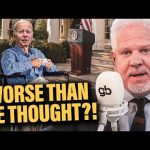Senator Cory Booker of New Jersey made headlines this week by delivering the longest speech in Senate history—a 25-hour, 5-minute monologue aimed at denouncing the Trump administration’s policies. While Booker’s marathon address broke the previous record set by Senator Strom Thurmond in 1957, his performance has sparked widespread debate over whether it was a meaningful act of protest or an exercise in political grandstanding.
Booker’s speech, which began on Monday evening and stretched into Tuesday night, covered a wide range of topics, including healthcare, environmental policy, and alleged threats to democracy posed by former President Trump. While he framed his address as a “call to action” against what he described as a national crisis, critics were quick to point out the lack of substantive proposals or legislative focus. The speech did not serve as a filibuster to block legislation but rather as a symbolic protest, leaving many questioning its practical value.
The senator’s dramatic display was met with mixed reactions. Democrats praised Booker for his stamina and commitment, hailing the speech as a bold stand against what they view as harmful policies. Senate Minority Leader Chuck Schumer even celebrated the moment, calling it a testament to Booker’s dedication to his constituents. However, Republicans and some independents criticized the spectacle as an attention-seeking stunt that disrupted Senate proceedings without offering concrete solutions to pressing issues.
Booker’s approach also highlighted a striking irony: despite being critical of filibusters in the past, he effectively employed similar tactics to draw attention to his grievances. This inconsistency did not go unnoticed, with detractors arguing that such theatrics do little to address the real concerns of American voters. Instead of focusing on actionable policies or bipartisan collaboration, Booker’s speech seemed more like an attempt to energize his political base and secure his place in the history books.
The broader implications of this event raise important questions about the state of American politics. While lengthy speeches and symbolic gestures can generate headlines, they often fail to translate into meaningful progress for constituents. At a time when Americans are grappling with economic challenges, healthcare concerns, and national security threats, many are left wondering whether such performances truly serve the public interest or simply reflect partisan showmanship.
In the end, Cory Booker’s record-breaking speech may have secured him a spot in Senate history, but it also reignited debates about the effectiveness of political theater in addressing real-world issues. For voters seeking leadership that prioritizes results over rhetoric, this display may have done little to inspire confidence in Washington’s ability to rise above partisan divides and deliver meaningful change.




